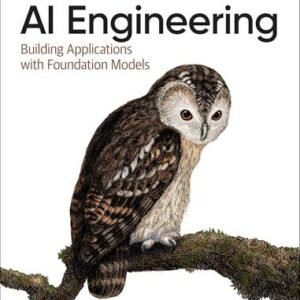- AI News
- Machine Learning
- Technology
- Robotics
- Software
- Industries
- Security
- Politics
- Entertainment
- History
- Shop
Subscribe to Updates
Get The Latest News, Updates, And Amazing Offers
Our Products
Important Pages:
- Navigating Tomorrow: The Heartfelt Call for AI Ethics Today
- Guardians of Trust: AI Ethics and Your Data Privacy
- Empowering Futures: Ethical AI’s Role in Education Revolution
- Navigating the Heart of AI: Ethics, Humanity, and Rights
- Navigating the Heart of AI: Ethics and Regulations Worldwide
- Whose Fault is it Anyway? The Heart of AI’s Mistakes
- Navigating Morality: The Heart of AI Development Ethics
- Confronting AI Bias: A Call for Ethical Responsibility
Author: koolerai_Admin
AI chips and processors have undergone a remarkable evolution, from rudimentary designs to today’s advanced architectures. These specialized components drive machine learning and neural networks, significantly enhancing performance and efficiency in AI applications.
In today’s globalized world, AI is transforming communication through advanced translation and recognition technologies. By breaking language barriers and enhancing real-time interactions, AI empowers businesses and individuals to connect like never before, fostering collaboration and understanding.
The evolution of AI programming languages reflects the rapid advancements in technology and computational theory. From early languages like Lisp and Prolog, which revolutionized symbolic AI, to modern frameworks like TensorFlow and PyTorch, the landscape continues to transform, enabling increasingly sophisticated algorithms and applications.
Unlocking voter insights through AI transforms political analysis. By harnessing data-driven predictions, campaigns can tailor strategies more effectively, engaging voters on a personal level and driving informed decisions. The future of politics is predictive!
In the digital age, AI is revolutionizing audience interaction. By analyzing behavior and personalizing experiences, AI tools enhance engagement, making communications more relevant and impactful. Discover how these innovations are reshaping the way brands connect with their audiences.
Artificial intelligence is revolutionizing financial services by enhancing accuracy in data analysis and decision-making. By automating risk assessment and fraud detection, AI not only improves operational efficiency but also safeguards investments, fostering greater trust.
As we stand on the brink of an AI revolution, the heartbeat of humanity must guide us. Ethical frameworks and global regulations aren’t just guidelines—they’re our lifelines. Together, let’s ensure technology reflects our values, not just our capabilities.
Unlocking the power of AI for predictive maintenance revolutionizes manufacturing efficiency. By analyzing equipment data in real-time, businesses can anticipate failures, reduce downtime, and optimize maintenance schedules—ultimately boosting productivity and profitability.
In an era where cyber threats are increasingly sophisticated, AI tools for real-time analytics are revolutionizing security. By harnessing machine learning algorithms, organizations can promptly detect unusual patterns and mitigate risks efficiently.
The evolution of AI chips has revolutionized processing power, enabling unprecedented advancements in machine learning and neural networks. From early dedicated processors to today’s advanced GPUs and TPUs, these innovations are driving efficiency and performance in AI applications.




